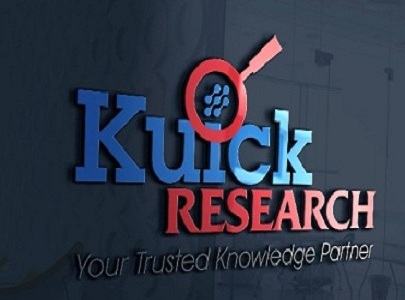Buy USD 20,000 Worth Of Reports (Single User/Multi User License) In USD 8000 Only
“Global Proto Oncogene Market and Clinical Pipeline Insight 2024” report gives comprehensive insight on ongoing clinical and non-clinical parameters involved in the development of global proto oncogene market in recent years. Currently there are 19 proto oncogene inhibitors drugs commercially available in the market and 166 are in clinical pipeline in various developmental phases.
“Global Proto Oncogene Market and Clinical Pipeline Insight 2024” report highlights:
-
Oncogenes as Therapeutic Targets for Treatment
-
Market Analysis of Proto Oncogene Therapeutic Drugs
-
Dosage and Price Analysis of Drugs
-
Patent and Approval Year Insight
-
Proto Oncogene Inhibitors Clinical Pipeline by Company, Indication and Phase
-
Marketed Proto Oncogene Inhibitors Clinical Insight by Company and Indication
Cancer has been designated as a complex genetic and cellular disease as it affects growth of cells due to sudden alterations in the genes. However, most of the conventional anti-cancer therapies developed for treating cancer were directed towards killing the tumor cells and were ineffective in inhibiting the cancer-causing transformations that occur in genes of normal cells. Nevertheless several modern cancer therapies have been recently developed including targeted drugs and immunotherapeutics. Although these regimens interrupt the expression of cancer genes but either by affecting the gene indirectly or with lesser efficacy which further leads to ineffective treatment of cancer.
Proto-oncogene Inhibitors are recently developed class of anti-cancer therapeutics possessing a unique mode of action as they directly inhibit the activation of cancer causing genes. Proto-oncogenes are inactivated form of cancerous genes which function normally until they’re activated by several factors or cellular mechanisms. When such factors activate proto-oncogene, then it gets transformed to form an oncogene which induces cancer development. Proto-oncogene Inhibitors are involved in direct inhibition of this transformation from inactive proto-oncogene to active oncogene and restricting cancer growth.
Global Cancer Therapy Market has been flourished with a wide range of proto-oncogene inhibitors in the past decade and has acquired a larger portion of the market. Furthermore, presence of a wide variety of proto-oncogenes in a human body has provided several targets for developing unique proto-oncogene inhibitors. These facts clearly indicate that proto-oncogene inhibitors is a major class of anti-cancer therapeutics comprising a wide variety of inhibitors based on different proteins and mechanisms which are affected by particular oncogenes.
Proto-oncogene Inhibitors represent a well-established global market as it possess close to 20 commercialized products amongst which more than 5 are in the list of top selling anti-cancer drugs. For instance, Imatinib is one of the proto-oncogene inhibitors which have collected more than US$ 10 Billion in past four to five years. Additionally, another proto-oncogene inhibitor namely Sutent has generated US$ 2 Billion in past three years.
Moreover more than 20 drugs are in the later phases of clinical pipeline and are expected to be approved in the coming four to five years. Furthermore, Biosimilars of highly popular proto-oncogene inhibitors have already been commercialized and have gained an excellent response in the market. Patent expiration of other popular proto-oncogene inhibitors will provide opportunities for the development and commercialization of more biosimilars.
Nonetheless, as proto-oncogene inhibitors are a larger class of anti-cancer therapeutics, development and advancement in genomic studies have successfully led to identification of more targets to form proto-oncogene inhibitors. Due to this reason, proto-oncogene inhibitors market is expected to expand with the entrance of more sub-classes of drugs under this class. This indicates that although proto-oncogene inhibitor market is well-established yet highly opportunistic for the scientific community as well as the pharmaceutical market.
Initially approved products in the proto-oncogene inhibitor market such as Imatinib has stayed in the market since 2001 and has continuously generated high revenues; even in the presence of highly competitive market with successive approvals of new proto-oncogene Inhibitors. Such examples are appropriate examples suggest that Global proto-oncogene market will continue to grow exponentially even in a highly competitive market space.
Proto-oncogene inhibitors are actively being supported by large scale as well as small scale pharmaceutical companies from different regions of the world. Key market players are Dexa Medica, Eisai Pharmaceuticals, Exelixis, Pfizer, Novartis, AstraZeneca and many more. Additionally, investments and funding from private as well as public sector is further an encouraging factor for the research laboratories and science institutes to develop unique proto-oncogene inhibitors indicating that this market is expected to grow at an unusually high growth rate in the coming future.
